In Japanese cooking, essential ingredients add a unique touch to various dishes. One such ingredient is mirin, a versatile Japanese rice wine known for its subtle sweetness and rich umami flavor.
But what if your kitchen is missing this sweet Japanese rice wine? Fret not. In this post, we will share the best mirin substitutes to rescue your recipes and elevate your dishes to new heights.
What Is Mirin
Mirin, often referred to as "Japanese sweet rice wine," is a key component in Japanese cuisine, used for its distinct taste and ability to balance and enhance other flavors. Its ability to add depth and complexity to a wide range of dishes makes it a beloved ingredient in both traditional and contemporary cooking.
Mirin is made from fermented rice, rice koji (a type of mold), and sometimes distilled alcohol. The fermentation process gives mirin its signature sweet and umami-rich taste. It is commonly used in marinades, glazes, sauces, simmered dishes, and soups, and it plays a significant role in achieving the balanced and nuanced flavors characteristic of Japanese cooking.
Types Of Mirin
Hon Mirin
One of the most esteemed varieties is Hon Mirin, often called "True Mirin." It boasts a well-balanced and intricate flavor profile, featuring natural sweetness and subtle umami notes. Hon mirin finds its place in traditional Japanese dishes like teriyaki, sukiyaki, and nimono, which are simmered preparations. Furthermore, it serves as a key ingredient in glazes, marinades, and dipping sauces, adding an authentic touch to these culinary creations.
Mirin Lite
For those seeking a milder alternative with reduced alcohol content, there's Mirin Lite. Although it retains the essential sweetness, it tempers the alcohol presence. This variation can substitute for Hon Mirin in recipes and is especially favored by those looking to limit their alcohol consumption while still enjoying the characteristic Mirin flavor.
Regular Mirin
Regular mirin, known as Mirin-fu Chomiryo, differs from the traditional Hon Mirin. It often includes added sugars, corn syrup, and artificial flavorings, resulting in a sweeter yet less intricate taste. As such, it is a common choice for everyday cooking, appearing in stir-fries, marinades, and salad dressings.
Glazing Mirin
If you need a specialized Mirin variety, consider glazing Mirin. It is designed specifically for glazing purposes and boasts a thicker consistency and a sweeter taste. This makes it ideal for giving roasted meats, vegetables, or grilled dishes a glossy finish and a touch of sweetness.
Tamari Mirin
For those with dietary restrictions, tamari mirin is a gluten-free option. It delivers a rich umami flavor, accommodating gluten-free and vegan versions of traditional Japanese dishes, ensuring everyone can enjoy the essence of mirin.
Aji-Mirin
Additionally, there's aji-mirin, a non-alcoholic mirin-like condiment. While it offers sweetness, it doesn't possess the same complexity as genuine mirin. Instead, it is a suitable substitute in recipes where alcohol content should be avoided.
The 12 Best Mirin Substitutes To Amp Up Your Recipes
Sweet Sake
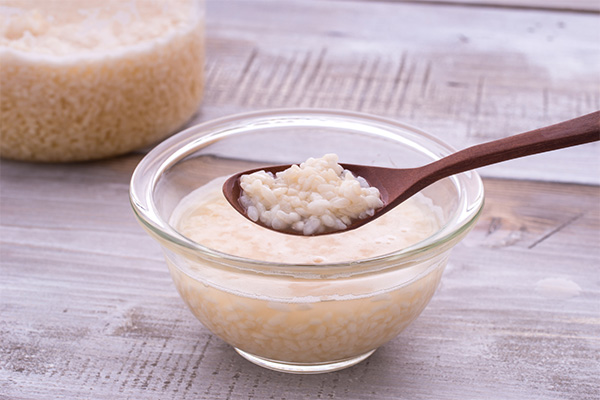
Sweet sake, also known as "amazake," is an exceptional substitute for mirin, particularly in baking applications. This rice-based beverage shares a similar sweetness and mild rice flavor with mirin, making it an ideal alternative for various recipes.
When using sweet sake as a mirin substitute in baking, it's advisable to maintain a 1:1 ratio, replacing mirin with an equal amount of sweet sake. This ensures that your baked goods retain the desired sweetness and moisture level. If you don't have sweet sake on hand, you can add a teaspoon of sugar per tablespoon of sake. You can also swap granulated sugar for a splash of fruit juice or sweet vermouth
Sweet sake's versatility shines in baked dishes that require a touch of sweetness, such as teriyaki-glazed pastries or sweet marinades for meats and vegetables. Its ability to impart a delightful sweetness without overwhelming other flavors makes it a reliable choice for enhancing the taste profile of your baked creations.
Rice Wine Vinegar
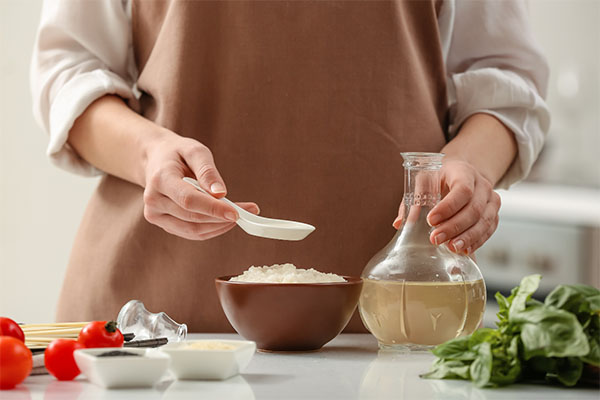
Rice wine vinegar, or "rice vinegar," is an excellent mirin substitute in baking, adding a touch of sweetness and acidity to your culinary creations. Its versatility makes it a valuable addition to a wide range of baking recipes, especially those that require a hint of sweetness and depth of flavor.
When using rice wine as a substitute, it's advisable to maintain a 1:1 ratio, replacing mirin with an equal amount of rice wine. This ensures that the desired balance of sweetness and acidity is preserved in your baked goods.
Whether you're preparing teriyaki-glazed pastries, marinades, or sauces for baked dishes, rice wine can seamlessly replace mirin, providing a delightful complexity of taste.
Dry Sherry
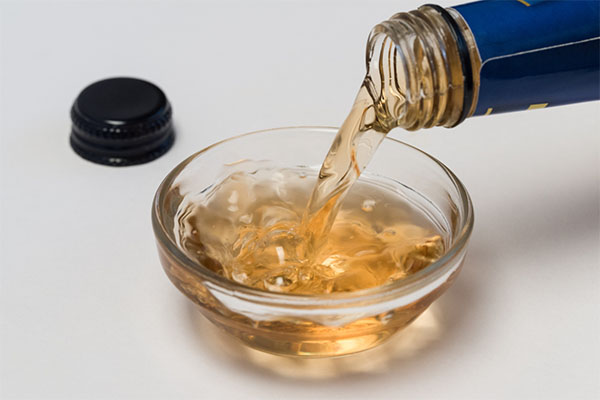
Dry sherry or a sweet marsala wine is an excellent mirin substitute in baking due to its unique combination of sweetness and complexity.
When substituting sweet marsala wine for mirin in your baking recipes, it is recommended to maintain a 1:1 ratio. This means replacing mirin with an equal amount of dry sherry to preserve the intended balance of flavors.
Dry sherry's versatility makes it a valuable addition to various baked goods. It works exceptionally well in dishes where mirin provides a touch of sweetness and depth of flavor. From teriyaki glazes for pastries to sauces and marinades, dry sherry can seamlessly step in for mirin, lending a delightful complexity to your baked creations.
Dry White Wine With Sugar Or Honey

Dry white wine, combined with sugar or honey, offers a splendid alternative to mirin in baking. When opting for this substitute, a 1:1 ratio typically works well. Replace the mirin in your recipe with an equal amount of dry white wine, and then add sugar, maple syrup, apple juice, or honey to match the sweetness of mirin. Adding sugar or honey helps mimic mirin's sweet and mildly acidic qualities, ensuring a harmonious flavor balance.
This mirin substitute shines in various baked dishes, particularly those with Asian or fusion flavors. From glazes and marinades to teriyaki-inspired treats, the combination of white wine and sweetener elevates the taste profile, delivering a delightful sweetness with a hint of acidity.
Rice Vinegar And Sugar
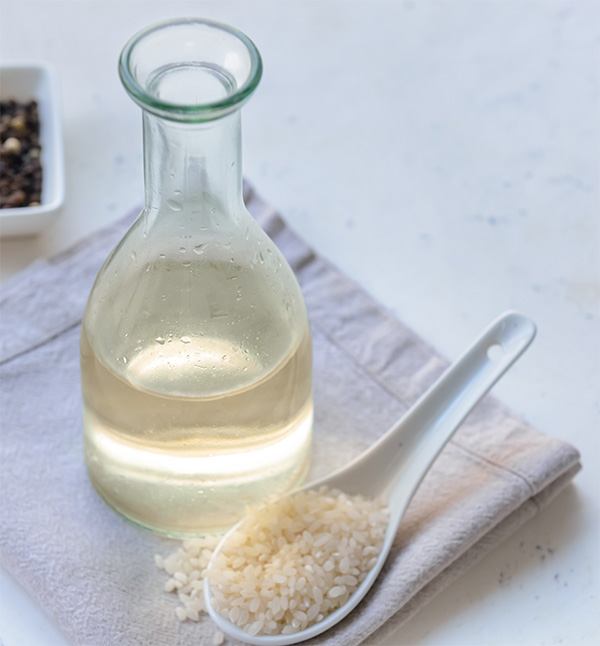
Rice vinegar combined with sugar is a fantastic substitute for mirin in baking. To recreate the mirin flavors, mix one tablespoon of rice vinegar with one teaspoon of sugar for every tablespoon of mirin required in your recipe. This rice vinegar and sugar combination offers the sweet and slightly acidic notes that mirin is known for, making it an excellent choice for various baked dishes.
Whether you're making teriyaki sauces, marinades, or glazes for your baked creations, rice vinegar and sugar work together harmoniously to achieve the desired flavor profile. This substitute is especially versatile in Asian-inspired recipes where mirin is a common ingredient.
Apple Cider Vinegar And Sugar

Apple cider vinegar and sugar are excellent mirin substitutes, especially in baking. To achieve the sweet and tangy flavor mirin imparts, mix one tablespoon of apple cider vinegar with one teaspoon of sugar for every tablespoon of mirin required in your recipe. This combination offers a delightful balance of acidity and sweetness, making it suitable for a wide range of baked goods.
Whether you're preparing marinades, glazes, or sauces, this substitute can seamlessly recreate the mirin flavors. It's particularly handy when you need that distinct taste in recipes with an Asian influence.
White Grape Juice

Image by stockking on Freepik
White grape juice is an excellent substitute, especially in baking. This alternative brings a naturally sweet and fruity flavor that mirrors the essence of mirin. To use white grape juice as a substitute, simply replace mirin with an equal amount of white grape juice in your recipe. It's a one-to-one substitution, making it convenient and easy to incorporate into your baking endeavors.
This substitute works well in various recipes, including glazes, marinades, and sauces, where mirin is commonly used. Its inherent sweetness and mild fruity undertones make it a versatile choice for achieving the desired taste profile.
Dashi Stock With Sugar
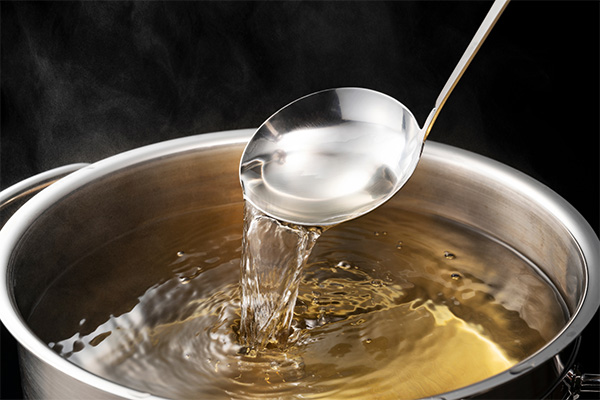
Dashi stock with sugar is a unique and flavorful mirin substitute that can elevate your baking creations. Dashi stock, a staple in Japanese cuisine, adds a rich umami depth to your dishes while adding sugar balances the flavors with a hint of sweetness. When using dashi stock with sugar as a mirin alternative in baking, it's essential to maintain a harmonious flavor profile.
To substitute mirin with dashi stock and sugar, combine one part dashi stock with one part sugar to achieve the desired level of sweetness. The amount to use depends on your recipe's requirements, but typically, you can replace mirin with an equal amount of this combination.
Aji-Mirin
Aji-Mirin, a popular Japanese condiment, is an excellent hon mirin substitute, particularly in baking. This versatile ingredient closely replicates the flavor and sweetness of authentic mirin, making it ideal for various culinary applications.
When using Aji-Mirin as a substitute in baking, it is recommended to maintain a 1:1 ratio. For every teaspoon of mirin called for in the recipe, simply replace it with an equal amount of Aji-Mirin.
Aji-Mirin's natural sweetness and subtle rice wine undertones contribute to the perfect balance of flavors in baked goods. Its ability to impart a hint of sweetness while enhancing the overall taste profile of desserts makes it an invaluable addition to your baking arsenal.
Chinese Cooking Wine
Chinese cooking wine, often referred to as Shaoxing wine, is an exceptional mirin substitute, especially for baking purposes. While it originates from China, its versatility and compatibility with various cuisines make it a fantastic option in the kitchen.
When replacing mirin with Chinese cooking wine in baking recipes, maintain a 1:1 ratio. Simply substitute an equal amount of Chinese cooking wine for the mirin called for in the recipe.
Chinese cooking wine possesses a mild sweetness and complex flavor profile, making it an excellent choice for adding depth to your baked goods or dumplings fillings. Its subtle rice wine undertones and slightly nutty notes complement a wide range of desserts, from glazes for cakes to sauces for pastries.
Balsamic Vinegar
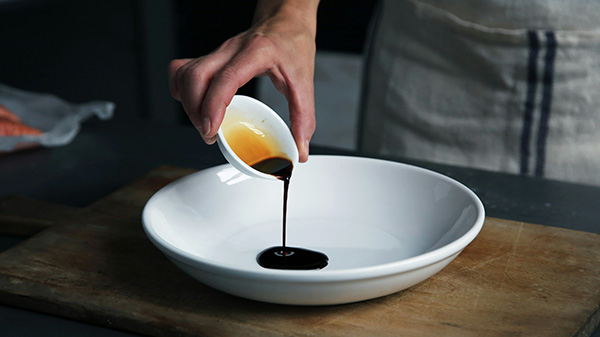
Balsamic vinegar, with its rich and nuanced flavor profile, can be an exceptional mirin substitute for baking. Although it differs from mirin in taste and acidity, it offers a unique depth of flavor that can elevate your baked goods.
When using balsamic vinegar as a substitute, maintain a 1:1 ratio—simply replace the mirin called for in the recipe with an equal amount of balsamic vinegar.
Balsamic vinegar's characteristic sweet and tangy notes and its aged complexity can add a delightful twist to your baked creations. While it won't replicate mirin's exact taste, it can enhance the overall flavor profile of your dishes. Balsamic vinegar pairs exceptionally well with fruits and can be a superb addition to fruit-based desserts, glazes, or reductions, providing a depth of flavor that makes your baked goods stand out.
Plain Kombucha
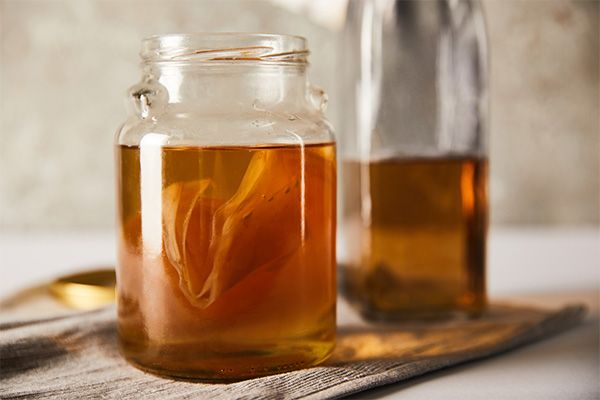
Kombucha, a fermented tea with a slightly sweet and tangy profile, can serve as an intriguing mirin substitute when used in baking. To replace mirin with kombucha, maintain a 1:1 ratio—simply substitute the mirin called for in your recipe with an equal amount of kombucha.
The unique flavor profile of kombucha, characterized by its mild acidity and subtle sweetness, can infuse your baked goods with a distinctive taste. While it won't exactly mimic mirin, kombucha can offer a pleasant complexity to your dishes, especially those focusing on health-conscious and fermented ingredients. Kombucha's effervescence can also contribute to lighter textures in your baked creations.

